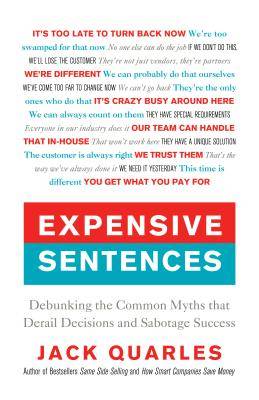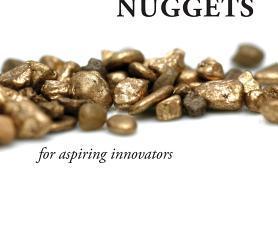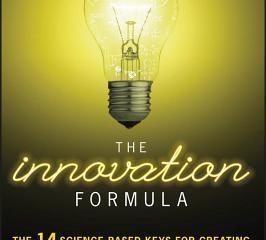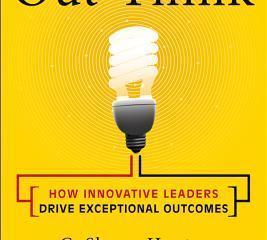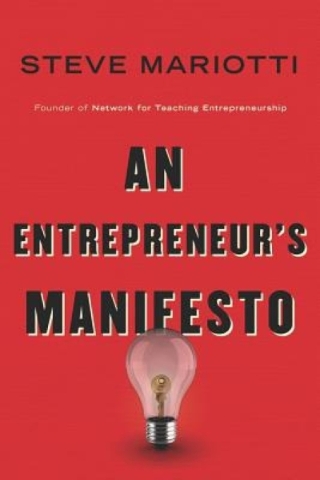
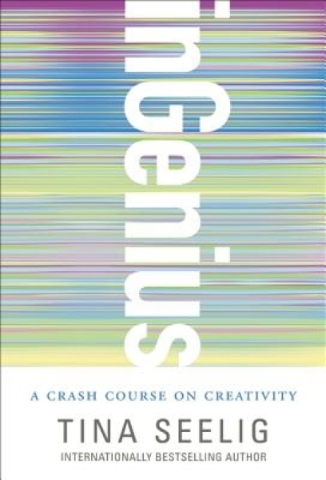
“inGenius – A Crash Course on Creativity” by Tina Seelig (HarperOne, $15.99)
If you weren’t fortunate enough to be born with the creativity gene, that doesn’t mean you can’t become a creative thinker and doer. Tina Seelig takes a page out of each individual’s past and shows how revisiting it can create a different future. She starts by reminding us of the innate curiosity all of us had as kids. Then, our imaginations ran wild as we tried to make sense out of the new and different.
As we grew to adulthood, things changed; we were expected (programmed?) to get serious about life, and leave experimenting and exploration behind. Workplace rules (i.e. bureaucracy, processes, procedures) boxed us in. Our innovative “muscles” atrophied from lack of use. Approaches to solving problems relied on the tired tried-and-true, not creativity. As a result, we’re unable to adapt in a work world dominated by change.
The adaptive alternative: Seelig’s “Innovation Engine.” It revs up our imagination. Using knowledge as its fuel and attitude to spark creativity, it shifts the gears of new ideas. Here’s a look at the fuel and spark:
Knowledge — Don’t be deceived by the “beginner’s mind,” which involves coming at solutions without established knowledge. “The more you know about a topic, the more raw materials you have to work with.” Alone, you’re a one-cylinder engine; you don’t know what you don’t know. Incorporating the knowledge of others adds cylinders that produce productive horsepower — which demands even more fuel.
Attitude — Without an I-can attitude, your engine is stuck in neutral. What we tell ourselves and what others tell us shape our responses to situations. Numerous studies have found that learning from mistakes shows that our “mind-sets are malleable.” Think of the brain as a muscle, when it’s used (i.e. acquiring knowledge,) alternatives materialize.
Key takeaway: Tuning your Innovation Engine requires building, juggling and applying knowledge resources.
“An Entrepreneur’s Manifesto” by Steve Mariotti (Templeton Press, $24.95)
Founded in 1987, Steve Mariotti’s Network for Teaching Entrepreneurship has graduated 600,000 students — many of whom were at-risk youths who believed business ownership was life’s opportunity. While developing an understanding of what it takes to succeed in business, students also learned how small businesses make a difference in every community.
Mariotti makes a strong case for including entrepreneurship and financial literacy in K-12 curriculum. He’s spot on; I thought back to my involvement in Junior Achievement projects while in high school. In JA, I learned not only about the various aspects of producing/selling a product and balancing a budget, but also about teamwork. Those lessons helped me secure summer employment during my junior and senior years. They also helped in college business courses because I understood the practical applications of the concepts explained by the professors.
Entrepreneurship empowers young people by showing them that managing their time, talent, attitude, energy and unique knowledge of their communities to create career opportunity. It teaches them grit — the ability to work hard, follow through on commitments (to themselves and others,) and respond resiliently in the face of failure and unexpected setbacks. Grit prepares them for life.
Financial literacy (e.g. budgeting, savings, checking, debit cards, investing, credit cards, loans, etc.) shows people how to manage their money. It’s important regardless of one’s choice of career.
The problem: Although studies have shown that including entrepreneurship and financial literacy as part of the educational mainstream boosts overall academic achievement, most K-12 curricula lack the funding and experienced teachers to include these programs.
The solution: Businesses small and large must partner with educators, local government, community organizations and human services agencies to ensure that the next generation has the tools to create their opportunities.
Jim Pawlak is a nationally syndicated reviewer of business books.
